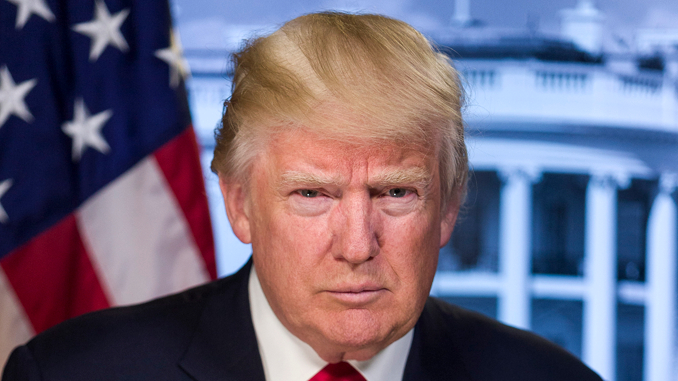
President Trump cannot block a congressional subpoena of his financial records, a Federal District Court judge has ruled.
House Oversight and Reform Committee Chairman Elijah E. Cummings wrote to accounting firm Mazars USA on March 20, identifying “a half-dozen questions about assets and liabilities reflected in the President’s Statements of Financial Condition that Cohen had provided to the Oversight Committee,” according to the ruling. Cummings’ letter requested four different types of documents related to not just the President, but also to several organizations and entities affiliated with him, including the Trump Organization Inc., the Donald J. Trump Revocable Trust, the Trump Foundation, and the Trump Old Post Office LLC.
The ruling explains that “The records requested included statements of financial condition, audited financial statements, documents relied upon to prepare any financial statements, engagement agreements, and communications between Mazars and the President or employees of the Trump Organization.”
Mazars requested a “friendly subpoena” before complying with the request, and in April, Cummings notified committee members of his intentions to subpoena the records from the firm. Lawyers for the President later urged the firm not to comply with the subpoena, claiming that the subpoena “would not be valid or enforceable.” Attorneys William S. Consovoy and Stefan Passantino put Mazars “on notice,” threatening legal action if the company complied with Congress.
“It is no secret that the Democrat Party has decided to use its new House majority to launch a flood of investigations into the president’s personal affairs in hopes of using anything they can find to damage him politically,” the lawyers wrote to Mazars outside counsel Jerry D. Bernstein before the subpoena was officially served.
Following the subpoena, President Trump and his private business filed a federal lawsuit on April 22, stating in his complaint that House Democrats were “using their new control of congressional committees to investigate every aspect of President Trump’s personal finances, businesses, and even his family,” and that “Instead of working with the President to pass bipartisan legislation that would actually benefit Americans, House Democrats are singularly obsessed with finding something they can use to damage the President politically.”
However, on Monday, the President was handed a major defeat in this pursuit when Judge Amit P. Mehta of the Federal District Court for the District of Columbia ruled that “President Trump cannot block the subpoena to Mazars.”
Judge Mehta began by invoking President Buchanan’s similar attempts at dodging congressional inquiries in 1860:
Echoing the protests of President Buchanan, President Trump and his associated entities are before this court, claiming that the Oversight Committee’s subpoena to Mazars exceeds the Committee’s constitutional power to conduct investigations. The President argues that there is no legislative purpose for the subpoena. The Oversight Committee’s true motive, the President insists, is to collect personal information about him solely for political advantage. He asks the court to declare the Mazars subpoena invalid and unenforceable.
Judge Mehta stated that while “there are limits on Congress’s investigative authority,” Congressional investigations into “a subject matter on which ‘legislation could be had’” were legitimate under Article I of the Constitution.
To the President’s claim that in issuing the subpoena, Chairman Cummings “ignored the constitutional limits on Congress’ power to investigate,” the ruling contends that “It is simply not fathomable that a Constitution that grants Congress the power to remove a President for reasons including criminal behavior would deny Congress the power to investigate him for unlawful conduct—past or present—even without formally opening an impeachment inquiry.”
The judge also notes that “Twice in the last 50 years Congress has investigated a sitting President for alleged law violations, before initiating impeachment proceedings,” pointing to the cases of Presidents Nixon and Clinton, and concluding that “Congress plainly views itself as having sweeping authority to investigate illegal conduct of a President, before and after taking office. This court is not prepared to roll back the tide of history.”
Accordingly, the court ultimately found that the subpoena should be allowed to stand:
Applying those principles here compels the conclusion that President Trump cannot block the subpoena to Mazars. According to the Oversight Committee, it believes that the requested records will aid its consideration of strengthening ethics and disclosure laws, as well as amending the penalties for violating such laws. The Committee also says that the records will assist in monitoring the President’s compliance with the Foreign Emoluments Clauses. These are facially valid legislative purposes, and it is not for the court to question whether the Committee’s actions are truly motivated by political considerations. Accordingly, the court will enter judgment in favor of the Oversight Committee.
The ruling considered the “balance of equities and the public interest” to outweigh the “risk of irreparable harm” and consequently denied the President’s request for a stay pending appeal.
President Trump criticized the ruling to reporters before heading to Pennsylvania for a rally. He called it a “ridiculous” ruling by “an Obama-appointed judge,” declaring “we will appeal it.”
The 41-page ruling can be read here.

1 Trackback / Pingback
Comments are closed.